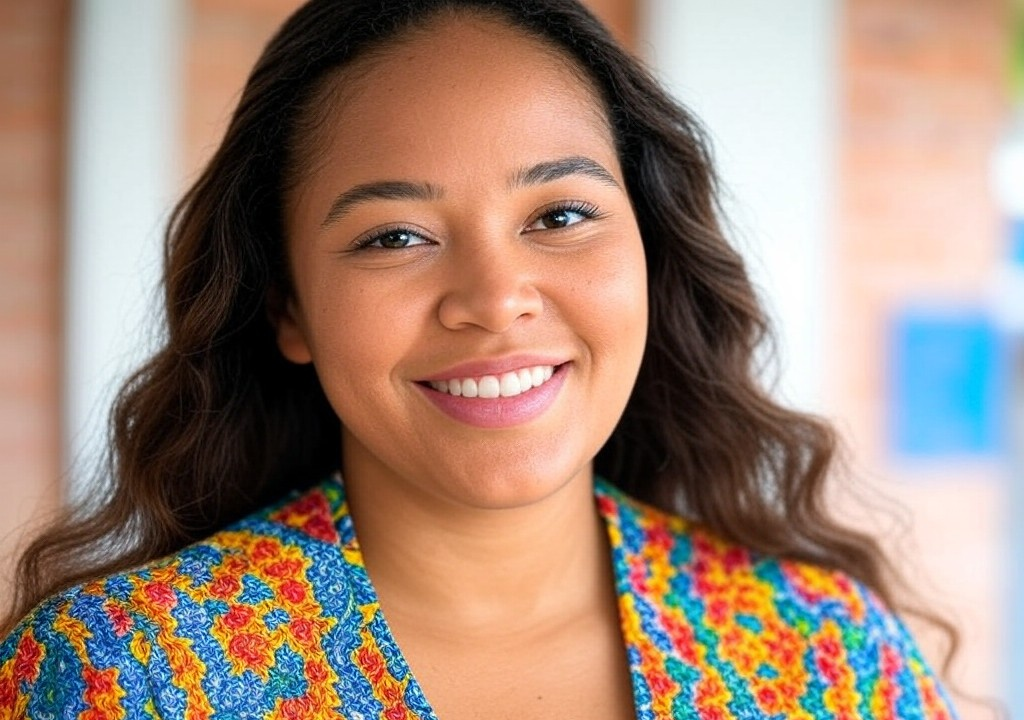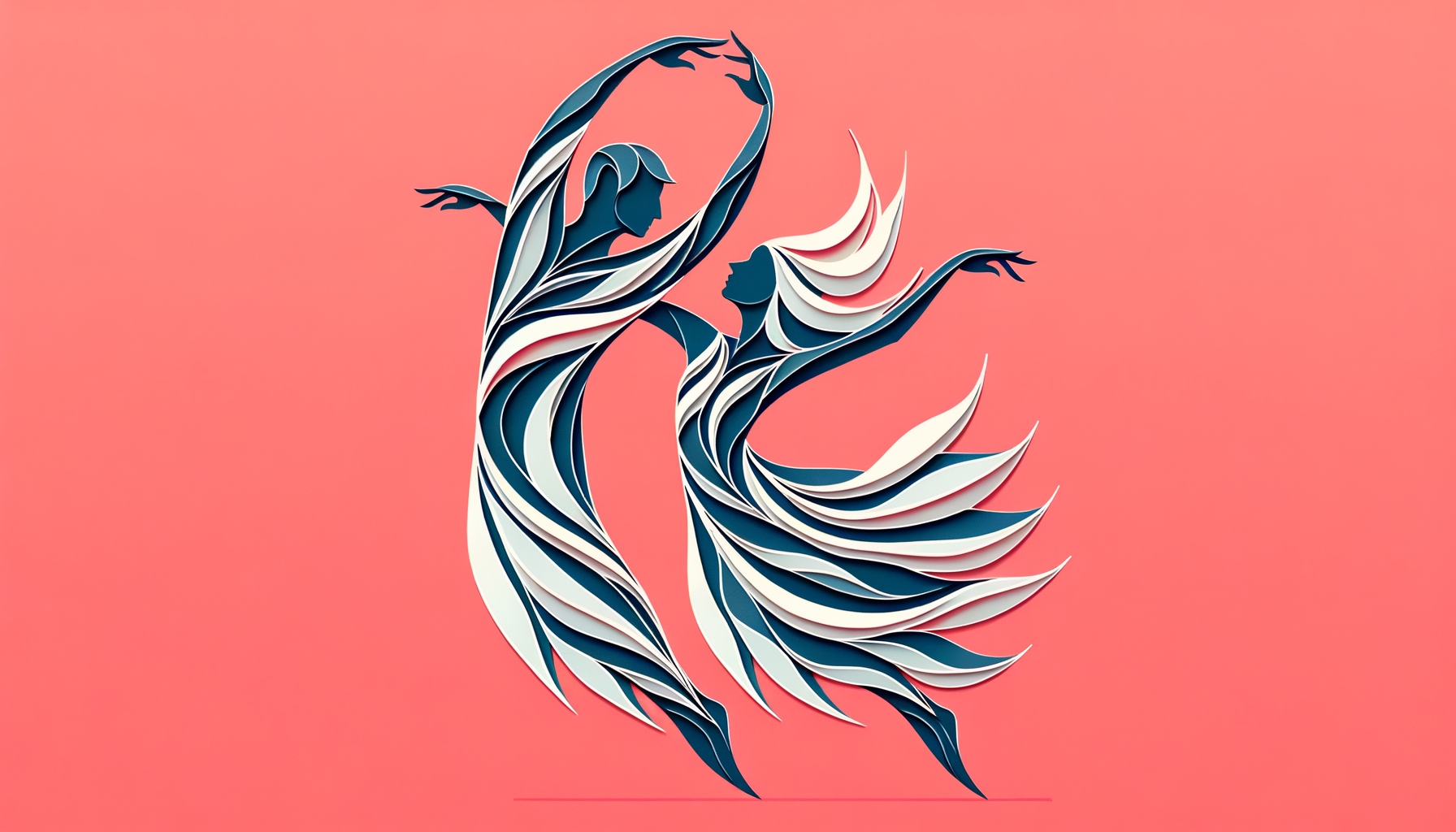Why do we love cheesy romantic tropes in movies so much? You know, the ones where the journalist chases a big story and—boom—ends up discovering herself (and, like, usually a love interest on the side)? Well, let me tell you, it's not all headlines and grand revelations. In my case, pursuing journalism was less of a sweeping "aha moment" and more of a dance—a two-step, fittingly enough, because this Houston girl can't resist a good bachata reference. Still, my path into writing and relationships feels like a plot twist I'm glad I leaned into.
Step One: Words and Whispers – How Writing Became My Love Language
Growing up in Houston's East End, words came to me like life did: loud, vibrant, and unapologetically authentic. My Cuban-Mexican family didn’t do "silent dinners" or polite small talk. We debated tamale fillings, analyzed the latest telenovela betrayals, and shared every juicy piece of neighborhood chisme as if it were breaking news. I didn’t always have much to say back then (listening was safer with an abuela who didn’t take kindly to interruptions), but I was taking notes long before journalism school.
Looking back, I realize I learned early how words could foster connection. There’s something magical about swapping stories, whether in a kitchen lined with pastelitos or across the patio at a quinceañera. They’re how we know we belong. So, when my high school journalism teacher handed me a notepad and sent me to cover the robotics club’s annual competition—a “snoozefest” by 16-year-old me’s standards—I thought, Wait, people can tell stories and get paid for it? Game officially changed.
Step Two: Why I Write About Love—Not Just the Mushy Stuff
If writing was my first love, relationships became my muse, but not in the way you’d expect. To be real with you, I’ve been the person crying into a Whataburger taquito at 2 a.m. when romances didn’t pan out. I’ve experienced that weird mix of heartbreak and craving queso (a universal feeling, if you ask me). But those moments gave me a lot to unpack about what it means to connect with others—and, more importantly, with myself.
When I decided to lean into creative non-fiction after a few years as a hyperlocal news reporter, I found myself returning to the intimate moments that so many of us fumble with. You know, the ones that are equal parts awkward and beautiful: that first coffee date where you discover they also cry during Pixar movies, or realizing mid-argument that maybe they’re not your soulmate but they’re still your teacher in this chapter of life.
Writing about relationships—whether familial, romantic, or platonic—feels like pulling back a curtain and inviting everyone inside. It’s messy and tender, and it matters, because at the end of the day, isn’t every human being looking for some version of belonging?
Step Three: Connection Is Built, Not Found
Here’s something I’ve learned while covering festivals in Houston, sipping vermouth in Madrid, and people-watching everywhere in between: love, like a good plate of ropa vieja, takes time to prepare. (And if your grandma’s anything like mine, it also takes a dash of guilt sprinkled in for flavor.) The same is true for relationships. There’s no "perfect person" or magical formula—even if movies with slow-dance montages tell us otherwise.
Instead, relationships, much like writing, are built piece by piece. They require intentionality. Whether I’m weaving together stories on cultural festivals or exploring the why behind breakups, my goal as a writer is to remind people that their experiences—every side-eye glance, every awkward swipe-right date—are valid. Connection isn’t some mythical unicorn; it’s a mosaic made from all your bits and pieces.
Quick Lessons I've Learned So Far
Now, before we start playing violins or writing me into the next rom-com, here are some (relatable and down-to-earth, I promise) truths I’ve picked up while pursuing both journalism and the art of love:
-
Self-reflection isn’t indulgent—it’s essential: Whether you're writing or navigating love, understanding your own motivations is key. Why did that last argument hit so hard? Why do I always cry while watching Selena? Asking these questions makes for better storytelling and better relationships. Trust me.
-
Curiosity over judgment: Good interviewers ask open-ended questions, and good partners do, too. “Why did you choose this career?” goes a lot further than “Oh, you’re one of those creatives, huh?”
-
The “spark” is overrated: Sure, sparks are fun, but building trust and mutual understanding? That’s the real fireworks show. Romantic, familial, or otherwise, relationships are crafted through those little, everyday acts of care.
-
Rewriting is part of the process: Relationships and drafts have this in common—it takes multiple revisions to get it right. Don’t be afraid of the backspace key… or, you know, an occasional apology text.
Step Four: Finding My Voice, Owning My Path
Maybe it’s the salsa beats of my childhood or the Spanish poetry books I devoured in Madrid, but I believe our lives have rhythms. Choosing journalism—and eventually carving out a space to write about dating, connection, and all the humanity in between—has been my way of dancing to mine.
People often ask: “Why this? Why relationships?” And my answer comes back to the same roots planted in that East End home with its domino games, spiced cafecito, and Sade playing during Sunday clean-ups. Writing about love and connection honors the way I grew up—valuing human stories as our most cherished currency.
At the end of the day, we’re all just trying to be seen for who we are. To me, that’s the most important story of all.
So yeah, I guess you could say my job lands somewhere between Houston reporter, romantic comedy sidekick, and nosy family member who’s figured out how to make chisme educational. And honestly? I wouldn’t have it any other way. The lesson for you? Whatever path you're walking—whether toward self-love, partnership, or a mix of both—there’s no wrong way to write that story. Just make sure it’s authentically yours. And if it involves crying into a taquito, well, I promise, you’re in good company.




















